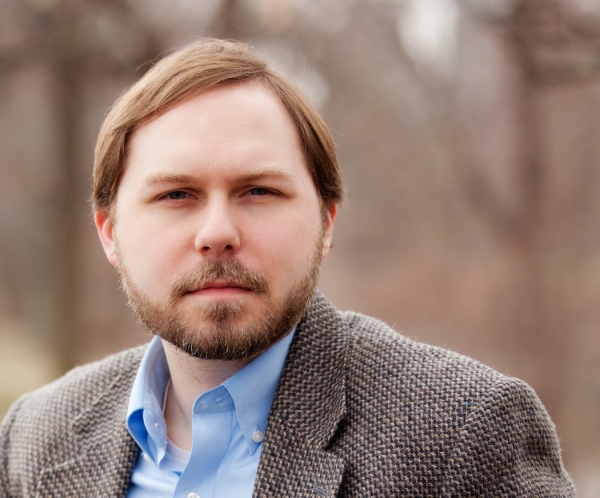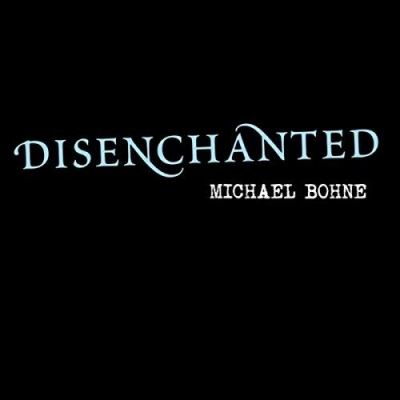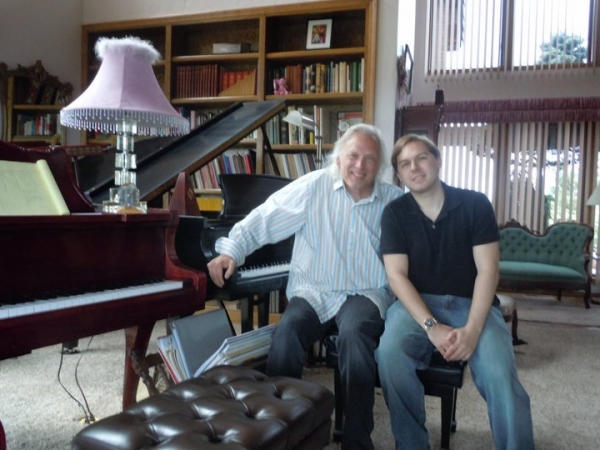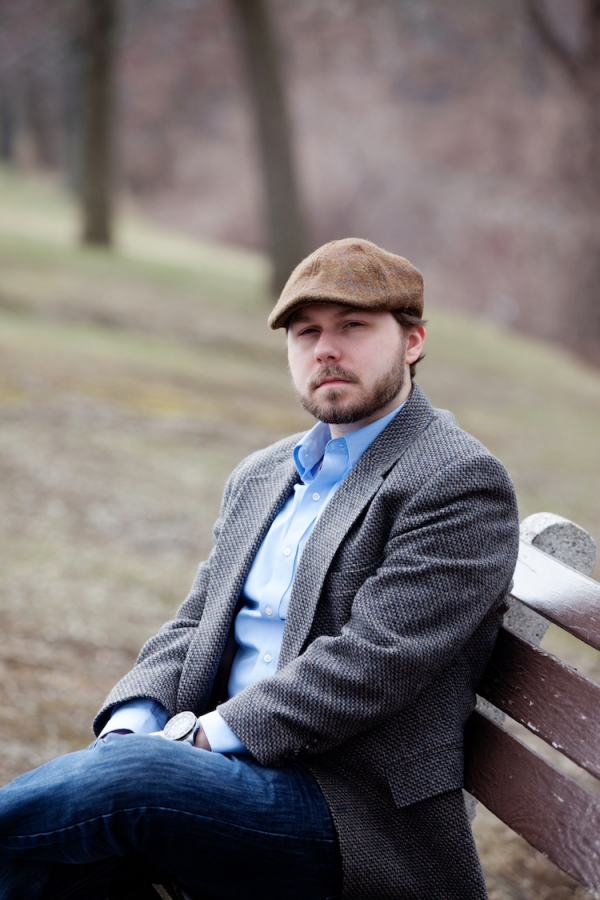It’s not often that I interview artists who have released one album and an EP, but Michael Bohne’s story is so interesting that I decided to do it anyway (besides, he asked so nicely and is a big fan of MainlyPiano.com!).
Mike did not start playing the piano as a young child and says that if he hadn’t been introduced to David Lanz’s music when he was in college, he might never have become a composer of piano music. After winning a competition sponsored by David Lanz in 2011, Mike released his EP called
Disenchanted in 2014 and his first full-length album,
In the Distance, in July 2018. I’m very pleased to introduce you to Michael Bohne (pronounced “bone”)!
KP: Hi Mike! How are things in New York today?
MB: It’s summer, so downtown Albany, in the capital city of New York, is the place to be! The weather is great for walks along the Hudson River and the bars and restaurants all have their outdoor seating set up.
KP: I’ve never been to New York, but you make it sound tempting!
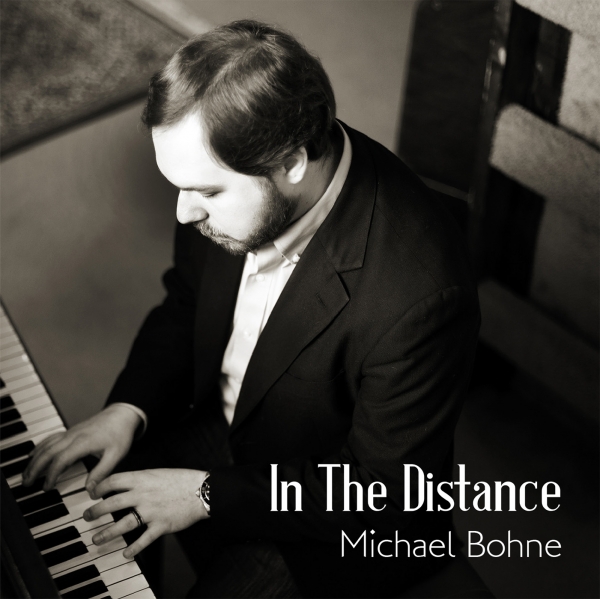
Click on album cover to go to Kathy's review.
You recently released your first full-length album,
In the Distance. You described the idea behind the album as “A global, extinction level event is certain and close in time. Few will survive, those that do will slowly fade away. Developed under this focus, this concept album explores the thought of living your life haunted by the ticking of a clock in the aftermath of a horrible truth revealed.” Tell us about it.
MB: So far, the record has surpassed many of the goals I had for it. I wasn’t entirely sure what to expect, but I put a lot of energy into it and the feedback has been very positive. It’s finally starting to feel like the music doesn’t belong to just me anymore. Folks are listening and exploring it, and they’re finding their favorite songs.
KP: As I told you, it was kind of weird because I reviewed Matias Baconsky’s When The World Ends a day or two before I reviewed In The Distance. It was a bit unsettling because it obviously has a similar theme. Do you think it’s likely that the end of the world will be a more common theme for a while, or do you think it was a coincidence that the two albums ended up back-to-back in my review pile?
MB: Ha! I think it’s a strange coincidence that the two records showed up back-to-back in your review pile (or is it? …), but as a theme, I think it’s going to stick around. The end of the world has always been an interesting story to explore and it’s been told so many times and in so many different ways. It’s part of entertainment today, and with the many books, films and TV shows that touch on it, there are so many places to gather inspiration from. It’s becoming a more popular topic. In general, I’ve always gravitated towards the sci-fi and horror genres which is where bits of inspiration were pulled from for the record. I would say my favorite movie is Close Encounters of the Third Kind, which music plays a big role in. I’ve always loved the X-Files, and what’s keeping my attention right now is The Walking Dead and the series’ “regeneration” of Doctor Who.
I had already recorded and started to publicize In The Distance when I stumbled upon Matias Baconsky’s When The World Ends, which had just been released. I like his project because he really stuck to the concept and used distinct titles for his tracks to help the listener. And I liked its sound. My track titles and each song’s emotions fit the concept I was going for, but I think I left things more open to interpretation in regard to the concept. In The Distance became a little looser with the concept as I kept writing. I wrote the songs over the course of more than a year and life experiences impacted it throughout.
KP: The piano that you recorded on is an old Chickering Anniversary Grand. How did you find it?
MB: When I began the process of looking to record Disenchanted, there were very few studios within a comfortable distance that utilized acoustic pianos. I kind of knew the sound I wanted and when I sat down at Blue Sky, I found it. The Chickering at Blue Sky Studios’ was probably originally manufactured in the early 1900’s. It’s very well restored, but I’m not sure how long they’ve had it there. I liked its more mellow sound, which is something Chickering was known for - I didn’t want the sound to be too bright. I decided to stick with the same sound for In The Distance and felt that the Chickering would complement its theme well. Chickering & Sons is one of the oldest American piano companies. It was founded in 1823 and made pianos until around 1980. There have been Chickering pianos in the White House and I found that Abraham Lincoln owned a Chickering, too. For my next project, I may explore other sounds - maybe something cleaner, but that’s to be determined.
KP: You mentioned your EP, Disenchanted (2014), which I haven’t heard (yet).
MB: Disenchanted was my first project and my first attempt at making a record. The collection of five tracks was some of the first songs I wrote. When I began playing and then writing songs, it was sort of therapy for me. I was still trying to figure everything out, though, and I felt the songs weren’t interconnected enough to be part of a full album. They all stand alone, and each song is very important.
KP: I read that you won a competition sponsored by David Lanz. Tell us about that.
MB: So, David hosted a YouTube video contest, and I believe this was in 2011. The objective was to perform one of his songs in an online video and then there was a voting process. He chose the winner from the finalists. I played “The Enchantment” from his Painting the Sun album. I snuck into my college’s basement and did the video on their grand piano that was set up for a lunch concert series the next day. It was usually locked up and I never got to touch it. I had participated in one of David Lanz's previous contests, but I didn’t make the cut! I made sure the video was flawless this time. The prize was the opportunity to spend a week at the LaFond Conservatory of Music in Centralia, Washington, for a small-group music retreat that included private lessons and workshops with David. I have no idea if he would enjoy my music projects or how they’ve turned out, but I walked away from that week at the Conservatory with a great deal of encouragement and I met some extraordinary people. I also learned a great deal from the Conservatory’s Madame Sandra Zegzula, and very much appreciated her hospitality. The main riff from “Through It All” on Disenchanted was written there.
KP: It’s interesting that you were in WA at The LaFond Conservatory of Music because Rachel LaFond was just here for a house concert with Joseph Akins. They met at one of the workshops David Lanz did at her mother’s conservatory, too.
MB: The Conservatory is incredible! When I think about the inspiration gathered from being there for just one week, it’s almost like there’s something supernatural involved. So many talented people have spent time and have collaborated there, and I think that has left an impression over time. When I see Rachel’s name, her song "Ember Warmth – Twin Peaks" comes to mind first. I haven’t listened to Encounters of the Beautiful Kind yet, but I’m looking forward to it.
KP: Both of her albums are really good!
Have you stayed in contact with David Lanz? Has he heard your newer music?
MB: I’m not sure if he’s taken a listen, but when I announced I was in the process of recording a new record, he did wish me good luck on Facebook in a comment which I appreciated very much.
KP: I have read that you have very limited vision. Is that something you were born with or has it manifested itself in adulthood?
MB: I was born with retinitis pigmentosa. It’s a degenerative condition. Research is showing a promising path forward to support those facing it, but a treatment for it and many similar conditions is still in development. My level of vision has become worse since childhood, and I’m considered legally blind. The main challenge right now is light sensitivity. Night blindness was a challenge before, but now with brightness, it’s getting harder to see as well. Extreme nearsightedness has always been an issue. Prescription lenses help to a certain extent, but with the help of technology, I can zoom in close enough to read and write, and even see sheet music on my iPad.
KP: Are you able to read music or do you play by ear?
MB: I have to zoom in so close to read it, so I could never play a piano flipping through a songbook as I go. I use the sheets as a learning tool or resource when I need to figure out a note, but the main understanding of a piece has to come from listening. Sometimes it feels like such a project to learn a song I want to know how to play.
KP: Interesting! Okay, let’s find out more about you and your background. Where were you born and where did you grow up?
MB: I was born and grew up in the Central New York region, in a small town outside of Syracuse located along the shores of Oneida Lake.
KP: How old were you when you started playing the piano? When did you start piano lessons, and how long did you take lessons?
MB: I believe I was 19. I was in college, at Utica College of Syracuse University. At the time, getting a degree, then graduating and finding a job just didn’t seem like a fulfilling enough path forward. When you’re 19 and your world-view is so limited, it’s depressing to think about how that’s all that is left. I always had an interest in music and at that time I was even the programing director at the college’s radio station, WPNR. I never had the drive to pursue playing music though, and I think hitting that wall was the trigger.
I always knew that if I wanted to play an instrument, it was going to be piano. I always felt more comfortable sitting at a piano than holding a guitar or something else. I looked up local piano teachers one day, and Keith James’ Keys Unlimited was literally right across the street from the dorms. I worked with him for four years I think, off and on. We started at the basics - he was a big believer in improv and ear training. He’s still out there. He has a different studio now in the Utica area, but he’s still teaching. We’ve been in touch and I’m keeping him updated on my projects.
I began learning how to play the piano by learning a lot of rock songs, stuff I was listening to. Then Keith introduced me to David Lanz and my interests with regard to the piano shifted. David always comes into the conversation because I learned so much playing his music. So obviously, getting to meet him in 2011 was incredible.
KP: I think I met David back in about 1989! I was teaching his music to my piano students and then started taking students to his concerts whenever he was in the SF Bay Area. He’s done several concerts in my home and I’ve proofed and edited his sheet music for his last several songbooks. He’s an amazing man!
How old were you when you wrote your first song?
MB: 21, 22? “Missing Her,” featured on Disenchanted was the first piece I considered to be a finished song.
KP: Were you a music major in college?
MB: No, but I took some really interesting music history classes.
KP: Do you perform in concerts very often?
MB: Locally in the Albany area if you do find me out, it will most likely be at a cocktail hour or fundraiser type event.
KP: Who or what are your biggest musical influences?
MB: Very distant from solo piano music, most of my musical influences can be traced back to a mix of post-hardcore, alternative and progressive rock bands. I’m also really interested in a few Finnish symphonic metal bands. However, the band and its music that has always been most important to me, is My Chemical Romance.
As far as the piano goes, were it not for the music of David Lanz, I don't think I would have ever even thought of writing for solo piano. I later discovered many other solo piano and new age artists. There are many pianists that inspire me to do better and try new things each day.
KP: Is there a particular philosophy that you try to convey in your music?
MB: I’d like it to inspire folks to take on challenges and always try your best to keep moving forward.
KP: Who are your favorite solo piano composers?
MB: We talked about David Lanz quite a bit, but there’s that other David out there too, David Nevue. Joe Bongiorno is also on this list. There are many, and they’re all featured on your site which is why it’s so surreal that I’m chatting with you about this.
KP: Welcome to MainlyPiano.com! You’re in very good company!
If you could have any three wishes, what would they be?
MB: I’m definitely taking the selfish route today. We’ll of course, fix the eyesight - that would probably be a good choice. Second, the ability to stop time; then in the paused state I would have so much more time to work on music. Third, a vacation fund that would automatically replenish itself once my wife and I returned home. If I had a fourth wish I’d probably try to help some other people.
KP: What’s up next for you?
MB: I need to go walk the beagle. Copper gets three walks a day, no yards in downtown. I should have wished for a yard for him, but then the parking lot would probably disappear, and we need parking.
KP: Haha! That’s a little more immediate than I had in mind!
MB: Looking ahead though, I think if I can get some traveling done and experience some new things I’ll find some new inspiration for the next music project.
KP: Is there anything else you’d like to talk about?
MB: Let’s just end the interview with a big thank you. I very much appreciate the opportunity to be a part of MainlyPiano.
KP: Thanks for taking the time to chat, Mike!
For more information about Michael Bohne and his music, be sure to visit
his website and his
Artist Page here on MainlyPiano.com.
Kathy Parsons
August 2018

